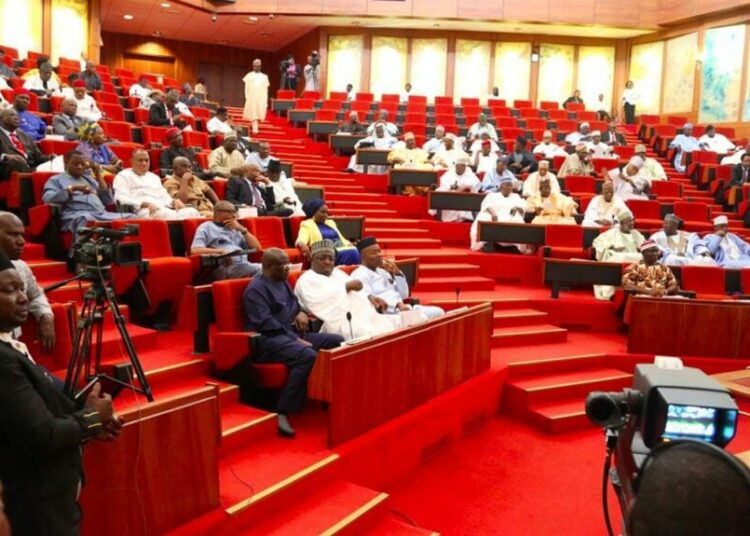The Senate on Tuesday passed for second reading a bill seeking to amend the Proceeds of Crime (Recovery and Management) Act, 2022, with a key proposal to establish a new centralised agency to oversee the management of assets and properties recovered from unlawful activities.
Titled the Proceeds of Crime (Recovery and Management) Bill, 2025 (SB. 343), the bill is sponsored by Senator Idiat Oluranti Adebule (APC, Lagos West).
It aims to enhance accountability, transparency, and efficiency by removing asset management responsibilities from the 18 agencies currently empowered to prosecute and manage recovered properties.
Leading the debate on the Senate floor, Senator Adebule described the current legal framework as inefficient and riddled with overlapping responsibilities, which she argued had weakened oversight and coordination.
“The existing structure assigns investigative, prosecutorial, and management roles to agencies like the EFCC, ICPC, and Nigeria Customs Service. This has resulted in poor synergy, transparency issues, and operational gaps,” Adebule said.
She explained that under the current 2022 Act, each of the 18 designated agencies has established its own Proceeds of Crime Directorate, leading to duplication of functions and inadequate safeguards for recovered assets.
According to her, the proposed amendment seeks to establish a single, independent agency to manage, administer, and dispose of recovered assets and introduce clear and uniform guidelines for handling forfeited properties.
It also seeks to create an automated assets management system and central database to track all seized and recovered assets, as well as allow investigative and prosecuting agencies to focus strictly on asset tracing and recovery.
Senator Adebule noted that similar models were already in place in countries such as the United Kingdom, United States, Australia, and South Africa, where prosecution and asset management responsibilities are handled by distinct institutions.
“This structure will reduce abuse and opacity in asset management, a concern that has consistently drawn public scrutiny. It will also ensure that forfeited assets are accounted for transparently and put to use in advancing national development,” she added.
She further clarified that the bill does not seek to undermine existing agencies but to enable collaboration while removing direct asset management from their portfolios.
While the bill enjoyed wide support among senators, a few dissenting voices trailed its proposal.
For his part, Senator Sani Musa (APC, Niger East) expressed partial support, cautioning against the creation of new government bodies, suggesting instead that existing agencies be strengthened.
Senator Emmanuel Udende (APC, Benue North-East) opposed the bill completely, insisting that agencies like the EFCC already possessed the mandate and capacity to manage recovered assets.
However, Senator Isah Jibrin (APC, Kogi East) defended the bill, arguing that it would help eliminate inefficiencies and close existing loopholes. “There are leakages by agencies that recover these assets, and we need to block them through an independent agency,” he said.
The bill, which was first read on February 14, 2024, has now passed second reading and has been referred to the Senate Committee on Judiciary, Human Rights, and Legal Matters for further legislative work.
The committee is expected to submit its report within four weeks.





